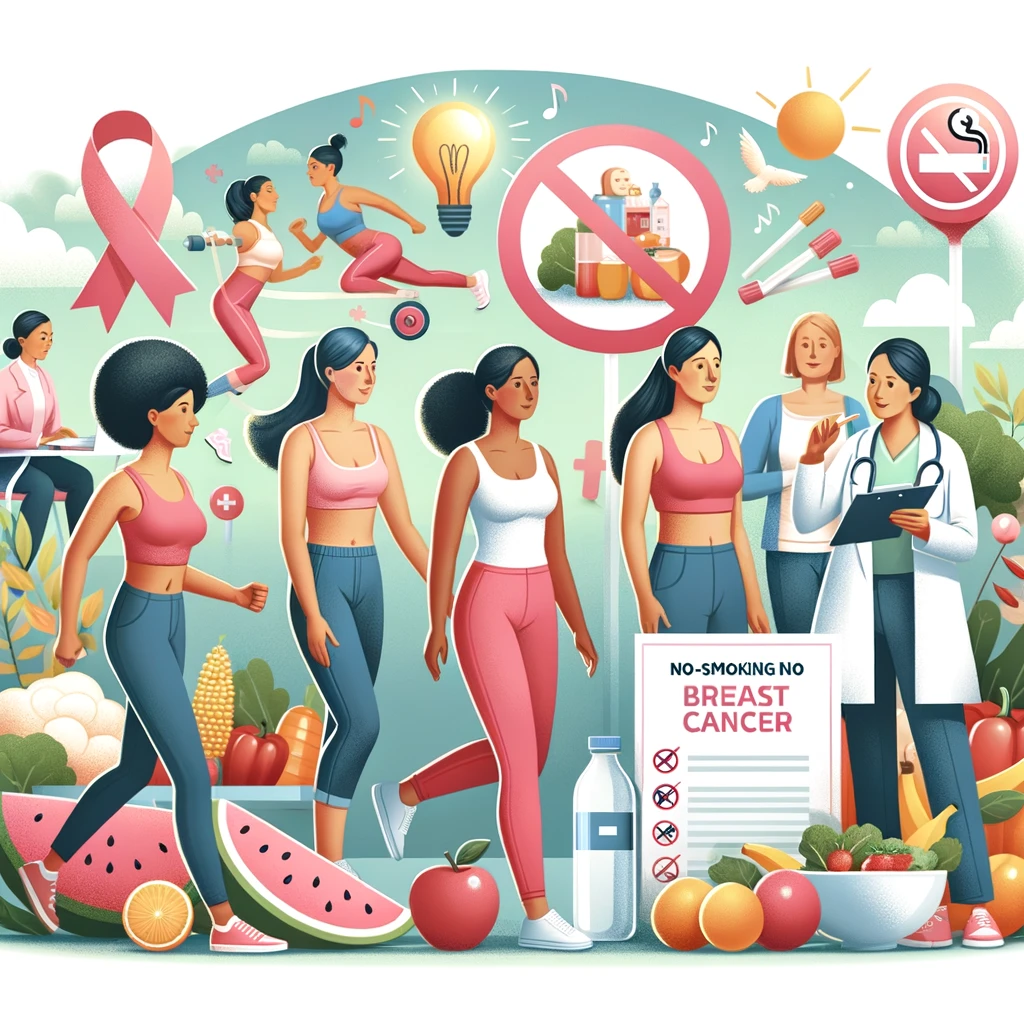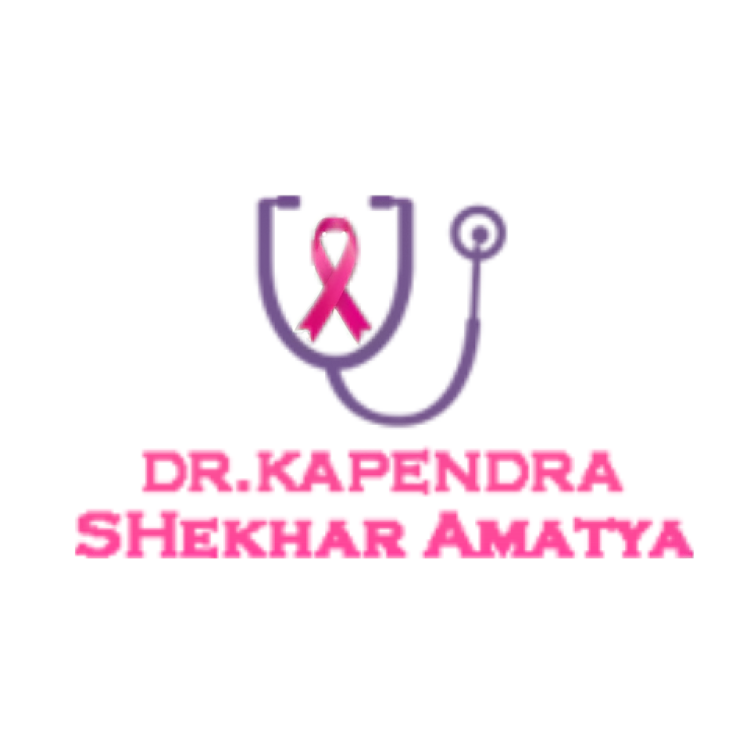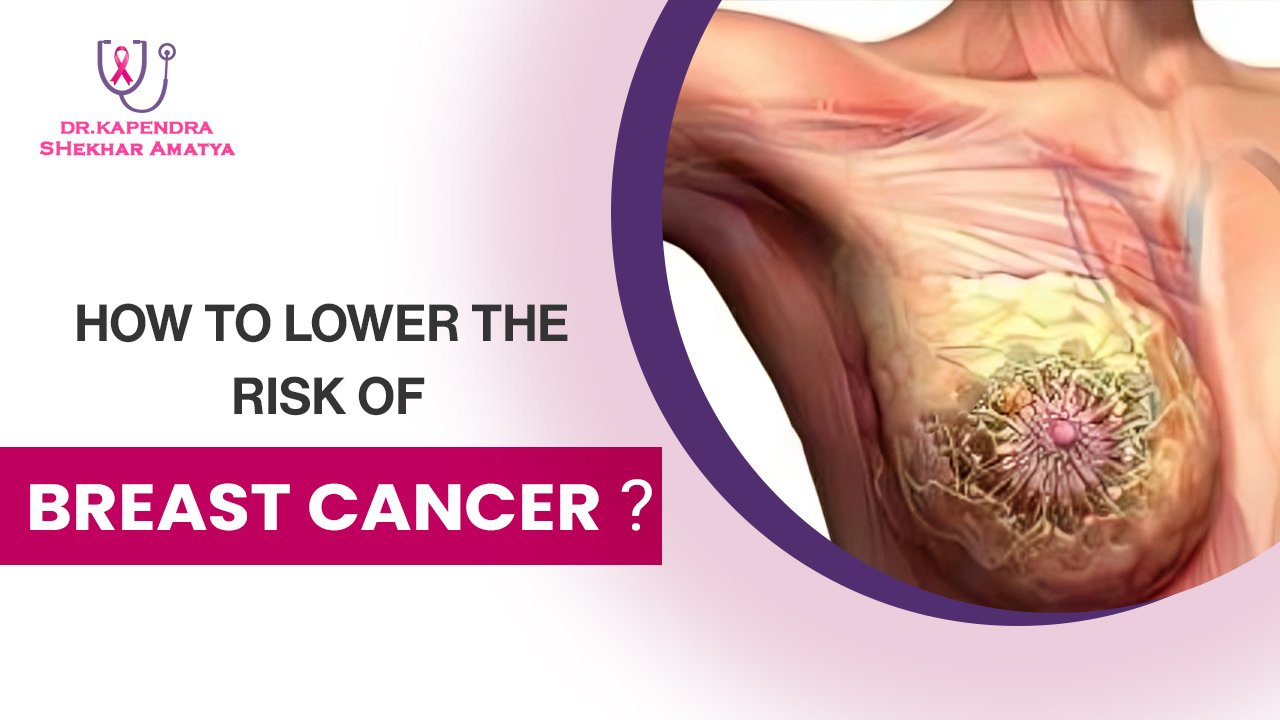Table of Contents
ToggleBreast cancer is a significant health concern globally, including Nepal. Women between the ages of 18 and 65 often search for accurate information on the “Risk of Breast Cancer” and “How to Lower the Risk of Breast Cancer.” Dr. Kapendra Shekhar Amatya, Nepal’s leading breast cancer surgeon and head of the Department of Surgical Oncology at the Nepal Cancer Hospital and Research Center, provides valuable insights into managing this risk and supporting those affected.
Understanding the Risk of Breast Cancer
Reducing breast cancer risk starts with awareness of factors that increase vulnerability. Genetics, lifestyle choices, and environmental influences all play a role. According to Dr. Amatya, managing weight, staying active, and limiting alcohol consumption are key steps that can make a significant difference.
How to Lower the Risk of Breast Cancer?

Maintain a Healthy Weight: Obesity is a known risk factor for breast cancer, especially after menopause. Excess body fat increases estrogen levels, promoting the development of hormone receptor-positive breast cancers. Dr. Amatya stresses the importance of regular exercise and a balanced diet to maintain a healthy weight.
Stay Physically Active: Regular physical activity helps regulate hormones, control weight, and maintain overall health. Women should aim for at least 150 minutes of moderate-intensity exercise per week or 75 minutes of vigorous exercise. Brisk walking, jogging, swimming, and cycling are excellent options.
Limit Alcohol Consumption: Alcohol consumption is directly linked to an increased risk of breast cancer. According to studies, each additional drink per day raises breast cancer risk. Dr. Amatya advises women to limit their alcohol intake to one drink per day or less to reduce this risk.
Breastfeed, If Possible: Breastfeeding is beneficial for mothers and infants and provides significant protection against breast cancer. Research shows that longer breastfeeding periods offer greater protection. If circumstances allow, Dr. Amatya encourages new mothers to breastfeed for optimal benefits.
Avoid Smoking: Smoking is associated with a range of health issues, including breast cancer, especially in premenopausal women. Quitting smoking improves overall health and significantly reduces the risk of various cancers.
Regular Breast Self-Exams and Screening: Although not a substitute for clinical exams, regular breast self-exams help women detect any unusual changes early. Routine mammograms are crucial for women over 40 or those at high risk. Early detection leads to more effective treatment and improved outcomes.
Healthy Diet: A diet rich in vegetables, fruits, whole grains, and lean proteins helps reduce the risk of breast cancer. Cruciferous vegetables like broccoli, cauliflower, and Brussels sprouts are particularly beneficial. Avoid processed foods, red meat, and sugary drinks.
Addressing the Risk of Breast Cancer through Genetics
Genetics also plays a role in breast cancer. Women with a family history of breast cancer or a known mutation in the BRCA1 or BRCA2 genes should consider genetic counseling. They may require a personalized screening plan .Dr. Amatya recommends women with such genetics consult healthcare providers for personalized screening strategies.
Supporting Women with Breast Cancer
Offer Emotional Support: A breast cancer diagnosis can be overwhelming, and emotional support is vital. Listen with empathy, offer comfort, and encourage open conversations about their concerns.
Assist Practically: Help with everyday tasks like cooking, cleaning, and running errands to reduce their burden and create a supportive environment.
Ensure Treatment Adherence: Encourage patients to follow through with their treatment plans and assist with appointments. Make sure they take medications as prescribed.
Stay Informed: Learn about breast cancer and its impact to dispel myths and offer informed support. Educating yourself helps you provide more accurate information to those affected.
Conclusion
Dr. Kapendra Shekhar Amatya’s vast experience in breast cancer care provides a solid foundation for his practical recommendations. He emphasizes adopting a healthy lifestyle and seeking regular screenings as critical steps in preventing breast cancer. His extensive work in surgical oncology at Bir Hospital, B.P. Koirala Memorial Cancer Hospital, and now as head of the Department of Surgical Oncology at Nepal
Cancer Hospital makes him a leading expert. Remember, you have the power to significantly reduce the “Risk of Breast Cancer” and improve early detection by staying informed and proactive. Consult healthcare professionals like Dr. Amatya for guidance in maintaining your breast health.


